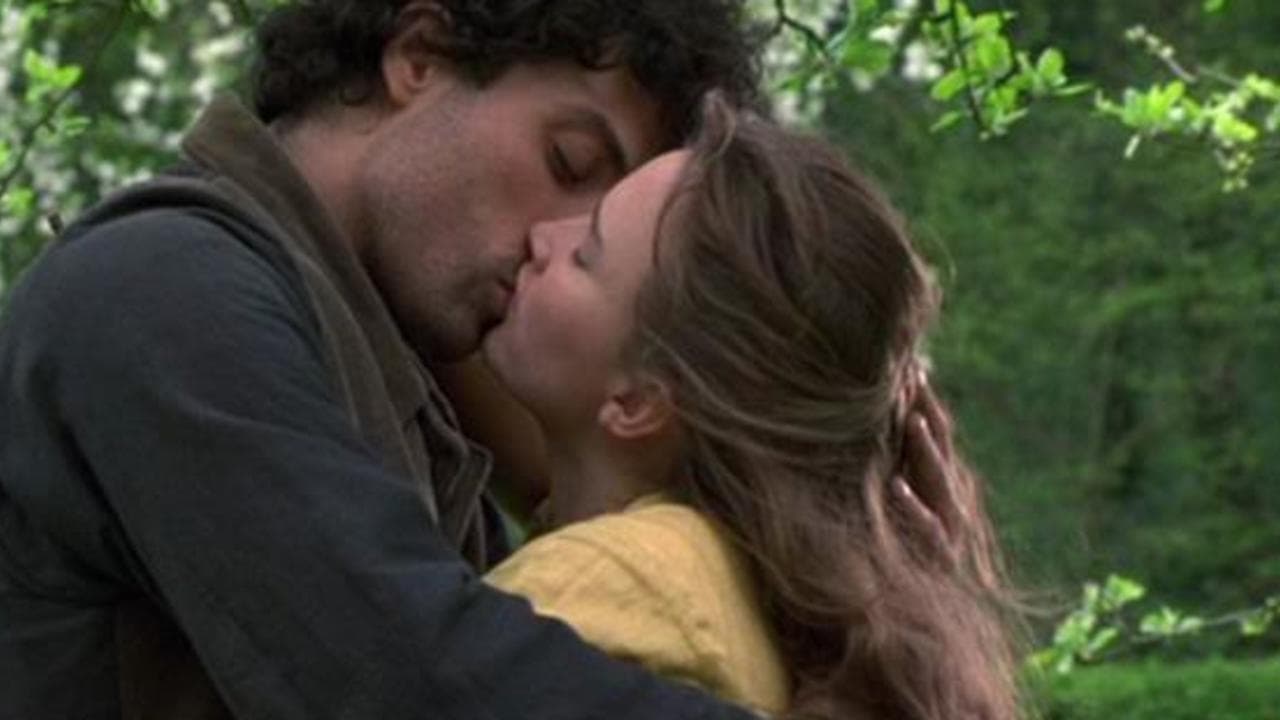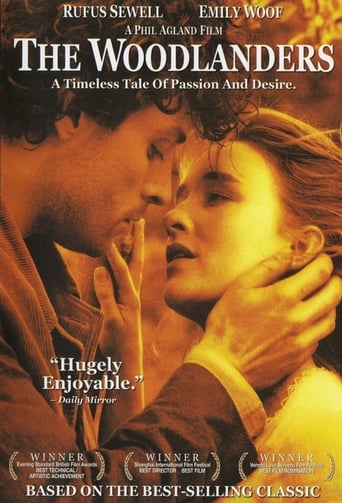IslandGuru
Who payed the critics
SpuffyWeb
Sadly Over-hyped
Keeley Coleman
The thing I enjoyed most about the film is the fact that it doesn't shy away from being a super-sized-cliche;
James Hitchcock
Despite his prominent position in the canon of English literature, Thomas Hardy has never really been a mainstay of the cinema in the way that, say, Dickens or (at least in recent years) Jane Austen have been. Although there have been occasional excellent Hardy adaptations, such as Schlesinger's "Far from the Madding Crowd" or Polanski's "Tess", a number of his novels have never been the subject of a feature film. There were, however, television adaptations of two of his novels in the mid-nineties, "The Return of the Native" in 1994 and "The Woodlanders" three years later. I deliberately watched the two films over the same weekend for the purposes of comparison. The two novels have basically similar plots, both being organised around a "love pentagon" along the lines of "A loves B, who loves C, who loves D, who loves E", although in "The Return of the Native" things are complicated by the fact that D (Eustacia) still has feelings for C (Wildeve) despite her marriage to E (Clym). In "The Return" the pentagon involves three men and two women; in "The Woodlanders" it is the other way round. A is Marty South, a young peasant girl who is in love with the woodsman Giles Winterborne (B), but he is in love with his childhood sweetheart, Grace Melbury (C). Grace, however, rejects Giles's proposal of marriage under pressure from her nouveau-riche father, who regards him as being not good enough for his daughter. She eventually marries the well-born young doctor Edred Fitzpiers (D), but the marriage is not a happy one and he begins an affair with a rich widow named Mrs. Charmond (E). Hardy regarded "The Woodlanders" as one of his best novels, and many contemporary reviewers agreed with that assessment, but twentieth and twenty-first century critics have not always followed suit. Certainly, as a film this version is not anywhere near as good as "The Return of the Native" which contained some excellent acting performances, especially from the young, pre-stardom Catherine Zeta Jones. The main weakness is the casting of Rufus Sewell as Giles. Giles Winterborne is reminiscent of some of Hardy's other characters, notably Gabriel Oak in "Far from the Madding Crowd" and Diggory Venn in "The Return of the Native". All three are plain and simple countrymen, decent and uncomplaining, who patiently and faithfully continue to love a woman despite an initial rejection. The difference is that Giles is the tragic hero of "The Woodlanders", whereas Gabriel and Diggory are eventually rewarded for their patience. (In those two novels the full force of the tragedy falls upon others). Sewell, however, seems to mistake Giles's patient stoicism for stolidity and lack of emotion, and plays him throughout as a dull, unresponsive fellow, wearing virtually the same expression, one of hangdog resignation, in every scene. I was surprised to see him smile briefly at one point, but presumably he needed to keep a second expression in reserve, just in case the first one should get worn out through overuse. None of the other acting contributions stand out, and Emily Woof makes a bland and forgettable Grace. The most memorable thing about her is her odd surname; I had to see it in print several times before the penny finally dropped and I realised that she was not called "Emily Woolf". (Just as it took me a long time to realise that Uma Thurman really was called "Uma" and not "Una"). As with most British "heritage cinema" productions the costumes and period detail are well done, and the woodland scenery is attractive, but this is far from being the best historical drama of recent years. 6/10
miss_lady_ice-853-608700
There's something beautifully quaint about this film, based on a Thomas Hardy novel. It was made in 1997 but there's none of the sexing-up you'd expect in a modern film.The Woodlanders are the inhabitants of a small village. Country folk Grace Melbury (Emily Woof) and Giles Winterborne (Rufus Sewell) were childhood sweethearts but when Grace comes back from boarding school, she finds herself unable to mix with Giles and the other villagers. Her father (Tony Haygarth) encourages her to marry new doctor Eldred Fitzpiers (Cal Macaninch) who is more befitting of her new educated self. However Fitzpiers cannot cope with mixing with the woodlanders, and Grace's heart pangs for Giles once more.There are two things Thomas Hardy is famous for: gloomy fate and Wessex, a fictional version of South West England. The third thing that he should be famous for is romance. The film is achingly romantic as everybody pines for the person that they cannot have. There's a secondary character who is also in love with Giles- odd reclusive Marty South (Jodhi May), who shares Giles' passion for nature. I would like to have seen more of her character but maybe that would just add to the aching tragedy of it all.Apart from the tragic finale, the gloomiest moment has to be when Giles' house gets demolished and Mrs Charmond (Polly Walker), a wealthy patient with her eye on Fitzpiers, complains that his house is blocking the road- cue a shot of a rotting pile of wood.In a sense, the film is a bit like Marty South: odd, obscure, slow and innocent. The slow pace works in a sense as you soak up all the beautiful cinematography and the gorgeously tragic score. Characters never have massive rages of passion- in that sense, it's a little bit like Chekhov. Life, miserable as it is, goes on.All of the characters are sympathetic, even Dr Fitzpiers. Macaninch's performance is enigmatic: on one hand, Fitzpiers is a cruel and adulterous snob; on the other, he's a man of science who just doesn't understand the old-fashioned ways of the country people. Grace's father does her the most harm, forcing her to better herself because of his own feelings of inferiority, and yet Haygarth gives a warm and touching performance.As the leads, Woof is adorably childlike as Grace and Sewell makes for a nice simple countryman. The film- I don't know the novel- is all about simplicity and innocence. The world of sexual desire is not present here, making the intrusion of Mrs Charmond all the more unpleasant. Her garish red dress is completely out of place in the charming pastel attire of the villagers and one longs for her and Fitzpiers to leave so we can hang forever in that wonderful idyll.My criticism would be that they could have fitted more in. The film seems to touch on the novel rather than portray it, and maybe a more conventional dramatic pace might have helped there. Maybe more probing of the social issues would have been good- really, just more of everything.This is definitely a Sunday afternoon film- a slow languid weepy, just like the good old days, that you can watch with anyone of any age. But to be honest, it's the perfect film to watch on your own as you allow it to wash over you.
MacyMay
I'm a huge fan of period films including those from Thomas Hardy's works, e.g., Tess of the d'Urbervilles, Far From the Madding Crowd, The Mayor of Casterbridge, Under the Greenwood Tree, etc. I've enjoyed them all…and, yes, I've read a few, too!I just recently rented the DVD, The Woodlanders, mainly for Rufus Sewell (exquisitely beautiful, as in Dangerous Beauty and A Knight's Tale, etc.) Though I've not finished the film in its entirety, I am, thus far, somewhat disappointed by the pace. It seems rather tired and incomplete, with all too brief and random character inserts; e.g., Polly Walker as Mrs. Charmond and Jodhi May as Marty South.I'm not enthralled by the acting, either. Emily Woof as Grace gives a thoroughly uninspiring performance. Perhaps the direction is at fault, although it's apparently won some awards in that category.Perhaps the fact that I just finished watching the totally captivating Dangerous Beauty; albeit, not a T.H. writing, casts an unfair comparison on this rather bleak and subdued setting.I may get back to you with an improved impression later. _____ Sorry. No improvement. This movie could kill a passion for Rufus, too.Again, the acting was so dull, so tedious, so lackluster and boring throughout, I feared I might expire before Giles did.There's absolutely no chance that I would intentionally subject myself to the task of reading the book. No missing details from the written word could ever entice me.What happened to fixate you so in misery, Mr. Hardy, that you should mire your writings in page after page of insufferable longing, sadness, and despair. Was it some sick pleasure you enjoyed to encumber your characters with ream after ream of unbearable and torturous quandary; and why do we come back for more!(Saving Rufus, I might have liked the film better with a different cast or a different director: either one, for certain, might have saved it for me. Tsk. What a shame.)
Jonathon Dabell
Thomas Hardy wrote such classics as Tess of the D'Urbervilles and The Mayor of Casterbridge, yet he always maintained that his best work was the often overlooked The Woodlanders. This film version is first-rate. I saw it a week after I saw the mega-budget Titanic, and I actually found this film more moving and more engaging that the costly James Cameron epic.The story is faithful to the book, but omits some of the peripheral details. It's about a young woman who returns to a close knit woodland community after several years away. In that time, she has become an educated lady, and she finds it quite difficult to relate to the people she once grew up with, having experienced wider and more varied cultures. Her childhood sweetheart is a simple woodcutter, and she feels that she is now too "good" for him, so she forsakes her fondness for him and marries a wealthy and educated doctor, with tragic consequences.The film was filmed in the New Forest (a gorgeous area of England) and it is a visual treat from first frame to last. The scenery is simply ravishing. Furthermore, the performances are very thoughtful and persuasive, complementing the sharp and carefully worked out script. This is definitely one of the best adaptations of a Thomas Hardy novel, and it can stand alongside Polanski's Tess and Schlesinger's Far From the Madding Crowd with its head held high.

